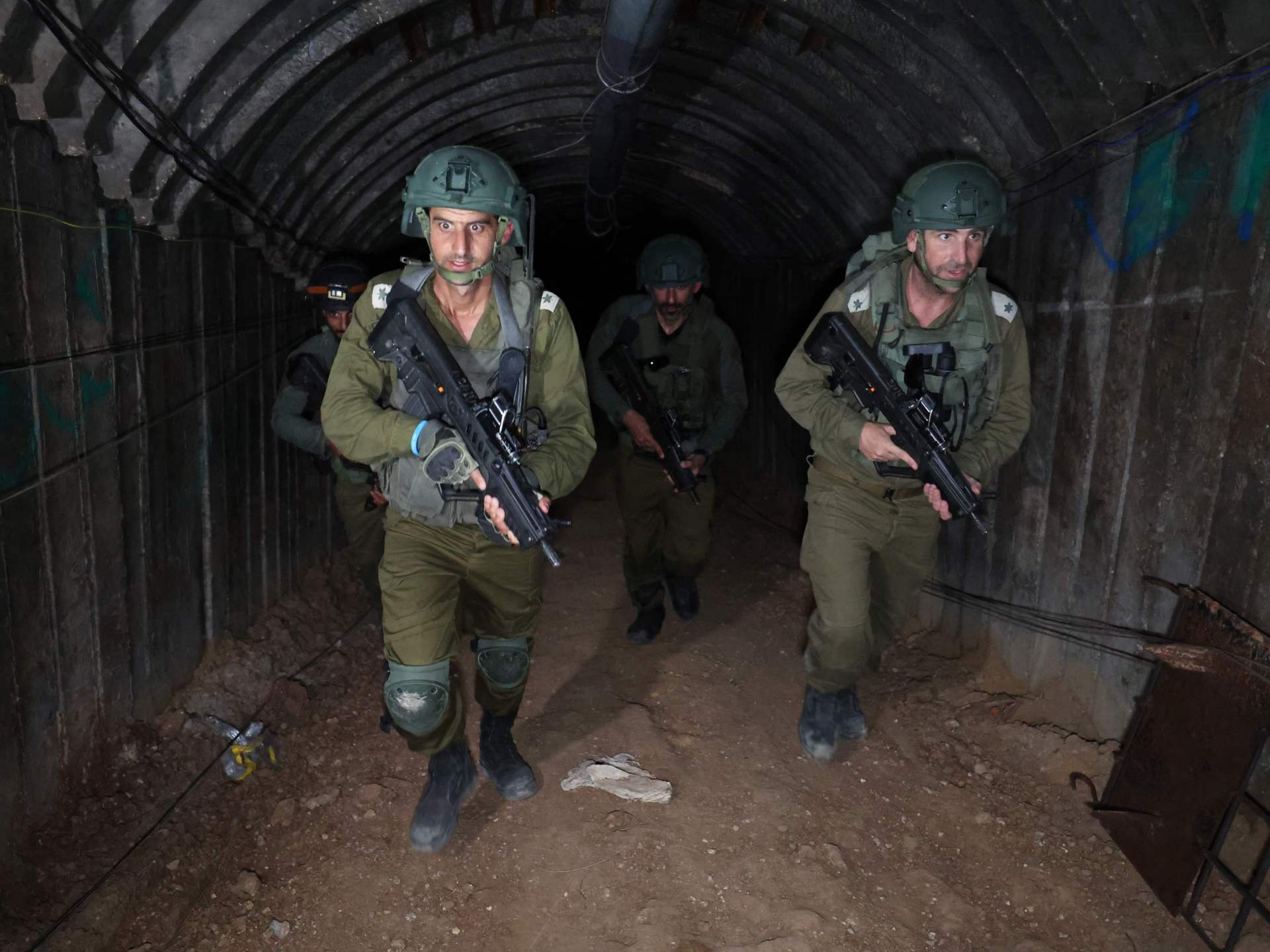Israeli soldiers inside a tunnel they say belongs to Hamas (French)
Le Monde newspaper, which accompanied the Israeli soldiers for a few hours in the town of Khan Yunis, south of the Gaza Strip, said that the Israeli army is slowly diving, for the first time, into a dense network of tunnels from the Islamic Resistance Movement (Hamas) under a city that has turned into rubble.
The newspaper explained - in a report written by Louis Imper - that the Israeli army, which maintains a large number of bulldozers and armored excavators alongside its tanks, is digging underground in search of Hamas tunnels, without any regard for Palestinian buildings, leaving behind only a pile of rubble.
Last Sunday, the newspaper’s correspondent crossed in an armored car to the town of Khan Yunis, south of the Gaza Strip, through one of the gaps created by Hamas on October 7, 2023 in the fence, which was only allowed to enter a small number of Palestinian farmers before the war. Israel destroyed buildings. There is an intention to establish a “buffer zone” one kilometer deep in the Strip.
Military censorship
The car passes between dams of rubble that have been removed on both sides of the track, several meters high. The passengers can only be seen through the narrow openings and surveillance screens in the armored vehicle, and thus - the writer says - “we will not see hospitals surrounded by the army nearby, and we will not see hundreds of Residents of the city who were arrested by the army and about whom there is no news, and we will not see the vicinity of the refugee camp in which thousands of desperate Palestinians gather west of the city.”
On that day, General Dan Goldfus was guided by 6 European and American media outlets, including a journalist from an evangelical Christian television channel committed to the Israeli cause, enthusiastically repeating every word of the officer in front of his camera.
The military censor requested to read our article, but did not request any changes, knowing that the army prevents the press from going to the Gaza Strip without accompaniment, as dozens of colleagues in the Strip were killed.
In the center of the city of Khan Yunis, Dan Goldfus points to a dirt slope that passes under a group of destroyed houses to the entrance to a tunnel, where the general believes that he has reached the heart of the secret military installations belonging to Hamas, with their enormous size making their destruction imaginary, but the army is pursuing those responsible there, and claims Part of these facilities will not be usable for a certain period.
The officer says, "You do not have to destroy all the tunnels. The important thing is to reach the heart of the network, and today we are in the most important of them. We are now working where Sinwar and his friends were," noting that this tunnel was intended to house officers, then it was remodeled into a prison, and it has been identified. The DNA of at least 12 detainees there, he claimed.
Concerns of the prisoners' families
After describing a section of the tunnel a little less than a kilometer long, the writer says that Goldfus refuses to specify how long it took his men to control such a tunnel. An unnamed officer said that most of the resistance they faced in Khan Yunis was small groups of two to five men. They come out of a tunnel or pass in civilian clothes, from one weapons cache to another, and they live in apartments.
Goldfus expressed little hope of liberating the detainees, saying, "We will take them back directly or indirectly. But we have given our leaders room to maneuver in order to return the detainees."
Indeed, the reporter says, General Gadi Eisenkot, the member of the military cabinet running the operations, had said some time ago that it was an “illusion” to hope to free the detainees before their captors shot them dead.
The Israeli government says that military pressure on Hamas leaders will convince them to release the detainees, but the families fear that these operations will lead to their execution. The army admitted that it informed the relatives of 31 detainees of their deaths, without specifying whether they were killed on or after last October 7, or in Army bombing and raids.
Source: Le Monde

